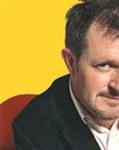






As far back as June 2006, I prophesied in my column in the Saturday Star that commercial radio was about to be revolutionised by a small device that fits into the palm of your hand.
I was right, albeit a little conservative in my analysis. This device has indeed brought about dramatic changes, but to the extent that traditional radio as you and I know it could very soon be over.
The device is the iPod and its family, which, since my column, has now grown to incorporate the iTouch and the iPhone. They are, as you know, personal music players, but the latter two, and their imitators, are the ones that really threaten the traditional role of the commercial radio station.
For what is going to happen to South African radio in the near future, you only have to look at the industry in other, more developed, markets - such as the UK - where fast, cheap 3G connectivity has changed the nature of the radio user.
Not so long ago I was driving my son to school in the UK and we were listening to Absolute Radio. My son grabbed his iPhone, tapped an application and accessed the latest golf results from the previous day's play in the US. He then tapped another application, scanned the latest news; tapped another application and saw a five-day weather forecast for London, Johannesburg and Durban. He then tapped the music application and started listening to songs he had downloaded from iTunes the night before. And then he switched off the radio.
In a matter of minutes my son had instantly accessed the mainstay of commercial music radio: news, weather, sport and music. More importantly, it was his specific choice of content. He had dictated what he wanted to know, what he wanted to listen to, and when he wanted it. As a former veteran of breakfast radio, I felt like the last dodo staring down the barrel of a gun.
All of a sudden I felt unnecessary.
Now imagine the impact of hundreds of thousands of people, all given the capacity to determine their own rate of consumption of their own choice of music and media content on their own handheld device. That would make traditional commercial radio no longer the preferred choice for media consumers and therefore no longer as attractive to advertisers. That could sound its death knell. That's what's happening in the UK radio market.
There's really only one thing that radio can provide that the iPhone can't: the unique information and entertainment content and contact provided by on-air presenters and hosts, or as I like to call them: radio talent.
“So, what's the problem?” I hear you ask.
Well, for the last 10 years, commercial radio programming in South Africa, as in the UK, has been underscored by the mantra “more music, less talk”. Outside of the morning and afternoon drive shows, most shows are music-driven where the talent is encouraged to play long sweeps of music and keep speech-driven content down to an absolute minimum - basically the core link of:
And that's the problem. Radio talent need to be retrained in the art of effective content production. Or as I like to say, they need to be ‘re-empowered'.
More importantly they need to be able to translate that content over various potential revenue streams, not just on-air. This is not just a process of getting all the talent in a room, telling them what to do and then letting them loose on the radio. It has to be driven by creativity and passion, otherwise it won't be unique and it won't be sustainable - and if it's neither unique nor sustainable, it can easily be copied and can't be used to attract revenue.
So, is the death knell of radio near? Well, it's certainly not too far away; and if the industry in SA fails to adapt to the definite changes in consumer behaviour, it won't be long before it'll be hanging over us like a sword of Damocles.
A new radio strategy is necessary, specifically the re-empowerment of radio talent to create compelling, unique and sustainable content over traditional and non-traditional revenue streams. And if the talent doesn't have the passion and creativity to do that, they need to step aside for those who can.
